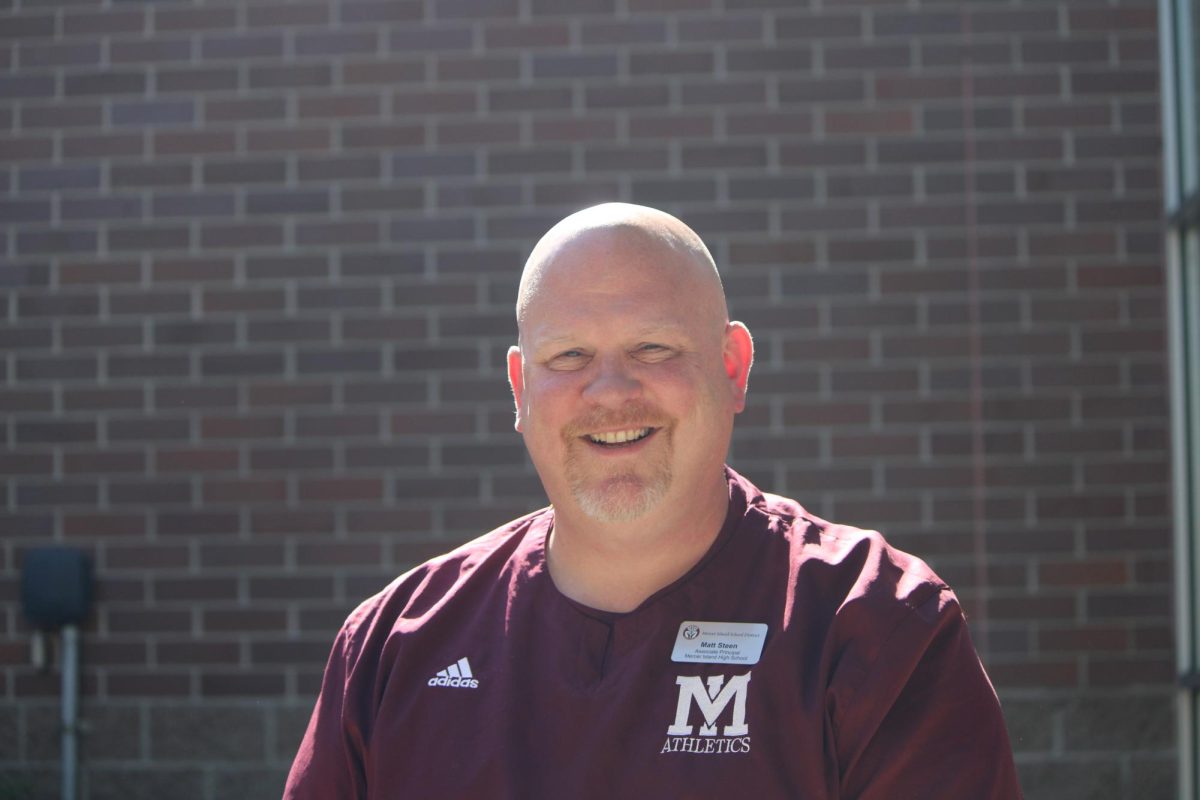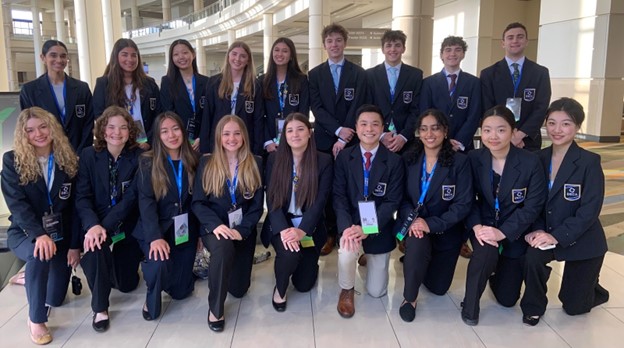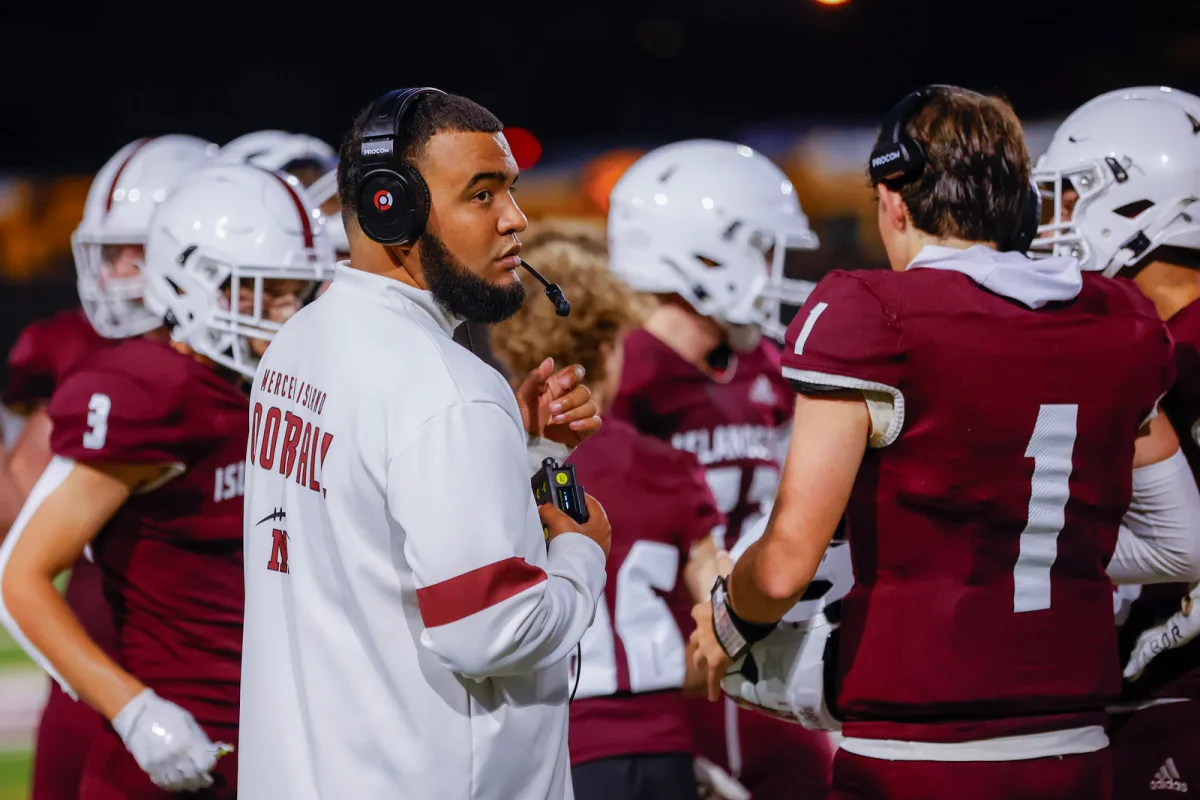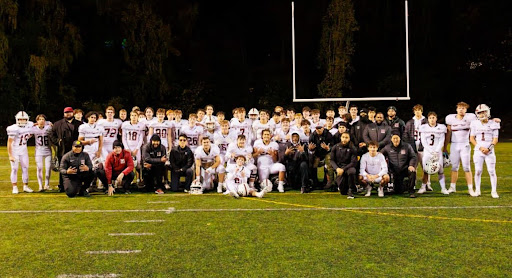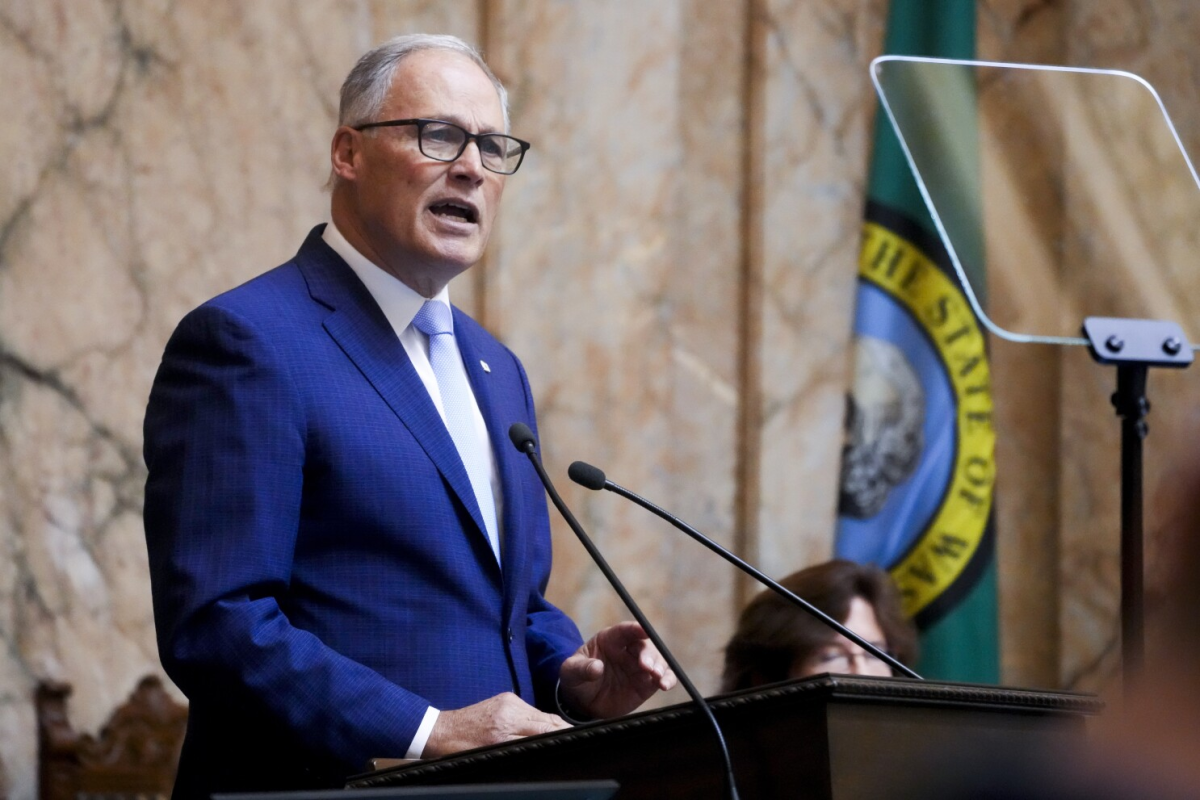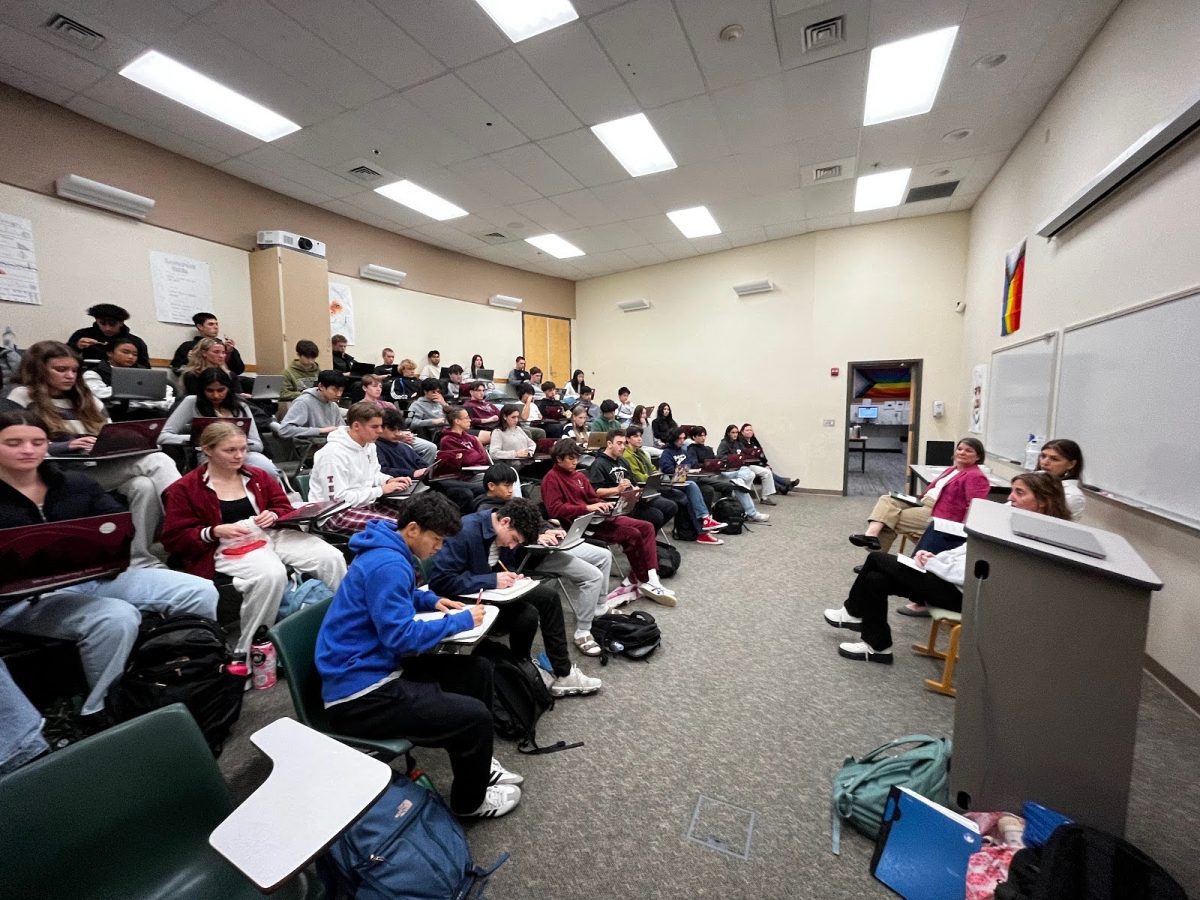Managing Editor Isabel Funk and Editor-in-Chief Ellie Gottesman spent the majority of the 2019-2020 school year interviewing former and current staff and collecting background on Security Liaison Kelly John-Lewis’s history at MIHS. In the midst of worldwide protests sparked namely by the killing of 46-year-old black man George Floyd at the hands of the Minneapolis police, this article became particularly relevant. For the first time in 21 years, Kelly John-Lewis said he thought it was time to speak up about his experience at MISD. For the purpose of this article, any reference to “John-Lewis” refers specifically to Kelly John-Lewis.
In his 21 years serving as Security Liaison at MIHS, Kelly John-Lewis has faced accusations of stealing money from the school, harassing staff and intimidating the school community. After investigation, MISD found none of these claims legitimate.
“You haven’t found me guilty on any of these accusations of intimidation, so why is it I’m being accused of it?” John-Lewis said. “I say it’s because of how I look and my color. They’ve never responded to that question to this day.”
While MISD says it fosters diversity, equity and inclusion, John-Lewis said these values have never extended to him as a 6-foot-9 black man.
John-Lewis expressed that on multiple occasions he has felt that his race and size have negatively impacted the way students, staff and community members interact with him.
A few years ago, a staff member stopped John-Lewis in the hallway to tell him that she thought he was “a poor father.” She reported that his response, laughter, was intentionally intimidating. Based on her allegation, the superintendent launched an investigation, which found that John-Lewis had done nothing wrong.
“In 21 years, no one has ever, ever asked what it is like being here. I think it’s time for me to speak up,” John-Lewis said.
John-Lewis and his ex-wife Stephanie John-Lewis have raised their two children, Jakob and Kaleb, in the District. John-Lewis said he wanted them to grow up on Mercer Island so that they could have more opportunities than he did when he was growing up.

“I wanted to make sure my kids had an opportunity that I didn’t take advantage of and that they were better prepared than my dad prepared me,” John-Lewis said. “My dad went to the University of Iowa and played basketball there, but he tells me he remembers sitting in the President’s office and hearing the President of the University of Iowa saying ‘I just need that n***** to score and rebound, I don’t care about his reading, math or anything.’ All the black players got PE degrees.
My dad did the best he could do for us. Myself and my brothers and sisters all had opportunities at college and none of us got degrees. I just wanted to make sure my kids got a degree. I wanted to make sure I put them in an environment that gave them the tools to succeed.”
Stephanie John-Lewis has taught third grade at Island Park Elementary School for 27 years. As a white mother raising mixed-race children, she said that she can understand what it is like to raise children of color in a predominantly white community.
“I love this District, Kelly loves this District, but there is no diversity for my children,” Stephanie John-Lewis said. “There is no role model for them to look up to that is of color. Henterson Carlisle has been there for the past few years, Marcus Tibbs [another Security Liaison] has been there for the past few years, but they’ve never had a black teacher.”
Henterson Carlisle, a six-year associate principal of MIHS, announced his resignation this June to explore other professional goals.
Throughout his time as associate principal, Carlisle said that he has been mistaken by parents for a custodian, coach and jock.
“I had an African American family say, ‘Oh hey you’re a coach,’ because I had on the polo, and I said ‘No I’m the associate principal,’” Carlisle said. “They were shocked, they were like, ‘Here?’ They said, ‘We’re not from here but we only see African American administrators in African American schools. We would never see one where we come from in a predominantly white school.’ That’s something that I live with all the time.”
With few black leaders in the school, John-Lewis and Carlisle both expressed feeling judged. In John-Lewis’s case, this judgment can be a hindrance in doing his job effectively.
“When a kid says ‘I’m afraid of Kelly,’ I get called into the office and told I can no longer be around that kid,” John-Lewis said. “I have to avoid that kid. I have to know that kid’s schedule and avoid the hallways when he comes out of class. I’ve been told that several times [by the administrators I’ve worked with].”
At other times, these misperceptions have resulted in complaints from parents or community members.
“It was Fine Art Showcase night [a few years ago], and he covers the parking area and people tried to go in and park and he wouldn’t let them because they weren’t on his list,” Stephanie John-Lewis said. “They went to the superintendent and complained to him about the ‘Big, black security guy who wouldn’t let them park.’”
The office of the superintendent did not respond to a request for comment on this article.
Craig Olsen, former associate principal who retired in 2013, interviewed and hired John-Lewis. Although he said he always personally appreciated John-Lewis’s work, Olsen added that he believed others in the District often found John-Lewis intimidating because of his size and race.
“I’m sorry that he is in a position where he feels that he is under the microscope,” Olsen said. “The unfortunate thing is, he certainly is, because of his role and because of his size and race. Right or wrong, that’s the way it is.”
As a black man under scrutiny, John-Lewis has faced many accusations, including that he unfairly favors students of color.
“He’s been told he is racist: ‘You’re picking on my child because my child is white. You give all the kids of color, the black kids, the mixed kids privileges that you don’t give white kids,’” Stephanie John-Lewis said.
Although most incidents were the result of implicit biases, some acts were blatantly racist, John-Lewis said.
“I was sitting in the office and a kid said, ‘What’s up n*****?’” John-Lewis said. “And I kind of went off on him. I wasn’t professional. I really wasn’t, but at the same time, I was the only one who got in trouble. The kid was very wealthy.”
Regardless of how others have treated him, John-Lewis said that he has put in many hours serving the Mercer Island community beyond what was expected of him.
“Kelly was on a set schedule, but we had him go to a lot of events, a lot of dances and athletic events, and I’m sure that put a lot of stress and strain on his family life because we asked him to cover a lot of events for us and I don’t know if he was fully compensated for all of those,” Olsen said.
John-Lewis also took on roles outside of his responsibilities as Security Liaison.
Mike Radow, an MIHS teacher of 24 years who retired in 2018 and served as head of the Mercer Island Education Association, recalled John-Lewis being asked by the District to help counsel some kids of color at the elementary schools. Radow noticed that John-Lewis seemed excited about the opportunity to gain more responsibility, but without a counseling degree, he was unable to move into a position with higher pay.
“I have a job and I don’t fit their description of who they want to employ,” John-Lewis said. “I don’t fit the criteria. I didn’t finish college. It’s just this feeling.”
Despite not having the official title and without pay for the extra hours, John-Lewis said he continued to counsel kids who needed additional support, at the request of MISD. John Harrison, former MIHS principal of six years who left the District in 2011, also said he recalled John-Lewis doing work outside of his job description.
“He spent a lot of time outside of his work hours, not getting paid, supporting kids,” Harrison said.
As part of his official duties, John-Lewis is responsible for handling parking-related issues and fees. According to Olsen and John-Lewis, some members of the school community questioned John-Lewis’s integrity regarding the money involved with ticketing and parking spots.
“There were all these allegations that Kelly had given away parking, or Kelly had taken money on parking, and none of that ever came true,” Olsen said. “We never found anything, that’s why Kelly is still there.”
Of the many requests MISD has made of John-Lewis over his 21 years, not all have been considerate of the way racial biases play into the community’s interactions with him.
“The District was asking Kelly to go serve papers to parents whose kids had been skipping. He said, ‘No, I’m a 6-foot-9 black man; I am not going to show up at a stranger’s door and get shot,’” Stephanie John-Lewis said.
Principal Vicki Puckett, who resigned this year to pursue other opportunities, recalled how the community’s ignorance about race influenced the reaction to an incident two years ago when flyers stating “IT’S OK TO BE WHITE” were posted around the school. She said that after these were taken down, she received complaints from community members about their removal.
“If we’re all about ‘Integrity, Innovation and Inspiration,’ what does that look like in terms of how we treat each other, how we work with each other and how we help our students to grow in understanding that the world is not all white?” Puckett said. “We had some interesting experiences from the adults in our community, who said, ‘We’re fine, why are you spending all this time on diversity and equity?’ So we said ‘Because our students aren’t going to go out into a world of all white people.’”
Although the administration has tried to hire equitably, teachers of color have not had overwhelming interest in applying to positions on Mercer Island.
“They want [John-Lewis] on staff very much, but I think some of it is for perception,” Radow said. “What if we had no black staff at all?”
Puckett recalled being told as a young teacher that she had been hired only to fill the “color quota.”
“Being a woman at the helm of a prominent high school, that doesn’t happen,” said Puckett, who identifies as Korean American. “And being a woman of color, that doesn’t happen. I am the only woman of color in the KingCo league, the only woman of color running a high school out of about 21 schools in the league.”
Despite having few teachers of color and fewer black teachers, MIHS currently has a Korean American principal and black associate principal, though both Puckett and Carlisle resigned this year.
“As long as you have a majority of white people educating, they will always control the narrative,” John-Lewis said.
The black population at the high school remains relatively small but the demographics are shifting and the black population is growing, Puckett said
“The challenge is that people make assumptions about our African American population: ‘Oh they come from the ghetto, they come from downtown Seattle, they don’t have any money, they’re poor,’ That’s what some people think about some of our African-American students,” Puckett said.
Because of these stereotypes, Radow does not believe that simply increasing diversity will be enough to create a culture change in the MISD.
“We can get a lot of diverse people in these buildings, but we’re still going to do things the way we do things,” Radow said. “Everyone else has to accommodate to the dominant way.”
Over her eight years as principal, Puckett said she has focused on equity education and empowering students of color, but said she still believes the school has room to grow.
“In this high school, when I first got here, I was taken aback that the students of color were just blending in with the woodwork and they really didn’t feel like they had a voice,” Puckett said.
Carlisle and Puckett expressed hope that students and parents will continue to educate themselves on equity, even after leaving the MIHS community.
“Diversity, inclusion, there’s no finish line because the students turn over, families turn over, it’s a constant work,” Carlisle said. “The important thing is are we doing the work?”
John-Lewis said Mercer Island is the place he has raised his kids and created a home. Yet he expressed that he struggles to feel accepted and understood by the community.
“I’m not a bad person,” John-Lewis said. “Don’t be afraid of me, get to know me. I’m there for the students. They don’t have to be afraid of me just because I’m a large black person. I have a lot of assets. I’m not a threat.”





